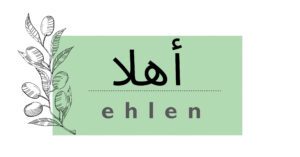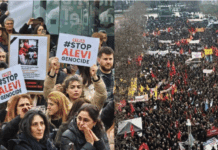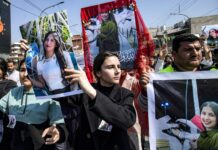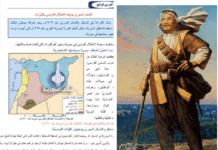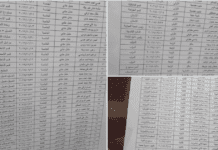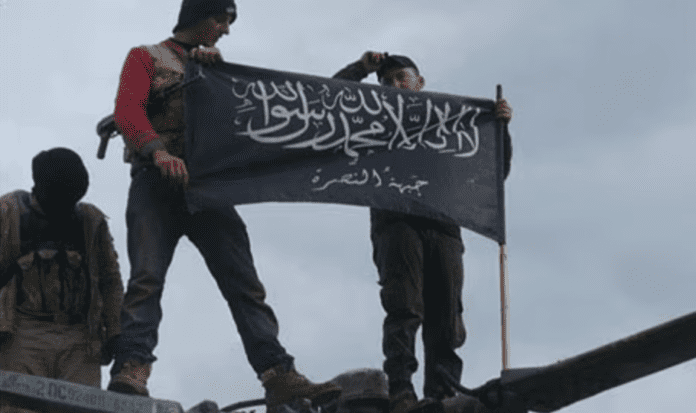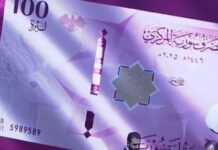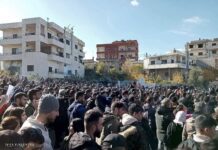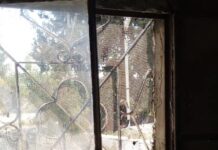Natali Glezou (Freelance Journalist)
Interview with 5 Turkish and Syrian intellectuals, Hamide Rencüs, Hakan Mertcan, Süleyman S. Narlı, Hasan Sivri, Ibrahim Mohamad
[Note: This article has been edited for brevity. The interview was published in the newspaper Epohi in two parts. The first part was published in the print edition of Epohi on January 4th, and the second part was published on its website on January 17th. Here are the links:
1) https://epohi.gr/articles/ginetai-na-pistepsoyme-oti-oi-mahhtes-ths-al-kainta-tha-mas-feroyn-thn-eleytheria/
2) https://epohi.gr/articles/nikh-noysair-sth-damasko-o-kindynos-genoktonias-ton-aleviton-oloena-megalonei/]
Alawis/Alevis are a significant minority, scattered across the Middle East and mostly located along the Mediterranean coastline. However, despite increasing focus on the identity and politics of Alawites since the outbreak of the Syrian conflict in 2011, there is still widespread disinformation for the Alawites. They are constantly accused by Orthodox Islam as heretics and infidels. Alawism has remained neither publicly visible nor officially recognized.
If we roll back the clock, throughout their history course Alawis have generally been subjected to heavy oppressions, violence, massacres and assimilation policies. During the First World War, the Alawīs broke their isolation to a certain extent, established relations with different communities and became an important power of the political scene. As the Ottoman Empire collapsed and the independent Syrian state was established, Alawi Sheikh Saleh al-Ali (d. 1950) started the resistance at the Latakia against the French invasion following the end of the war. He was one of the most important figures as he achieved the integration of the Alawis into the social and political fabric and subsequently the national unity in Syria.
In 1963, with the rise of the Ba’ath Party to power in Syria, Alawis gained, to a certain extent, the opportunity to live with dignity both in civil and political life. In November 1970, the coup led by Hafez al-Assad increased the opportunities for Alawites to attain positions within the state apparatus. However, it cannot be said that Hafez al-Assad, during his long-standing authoritarian rule, granted privileges to Alawism.
In Syria, since 2011, phrases such as “Alawite dictatorship” and “Alawite Syrian state” were frequently heard at the mass rallies of Syrian people asking for the democratization of Assad regime’s policies, which were “captured” by jihadists and mostly by Hayat Tahrir al-Sham.
In relation to these claims, there is no substantial evidence to suggest that Alawism had dominated the state institutions during either Hafez al-Assad’s or Bashar al-Assad’s rule.
The newspaper “Epohi” discusses with 5 Turkish and Syrian intellectuals1 for the latest developments in Syria and in particular for the persecution the Alawis/Alevis minority sustains in Syria. The newspaper interviewed Hamide Rencüs, researcher of Middle East and writer, Dr.Hakan Mertcan, academic and writer, Süleyman S. Narlı, president of the Federation of Arab Alevites Organizations in Europe, Hasan Sivri, journalist and Dr. Ibrahim Mohamad, University Professor at the Faculty of Economic Studies in Syria, economist and journalist.
1)Which were the reasons that made Assad government to collapse while an unexpected Syrian oppositional military operation was unfolding?
In Syria, there are extensive discussions for Bashar al-Assad’s betrayal from the army and especially from its leadership. However, apart from these talks, there are many reasons for Syria’s army collapse. The most important lies in its unpreparedness to fight. Over the past seven years, the army has been neglected, through poor training and low salaries. The average income per month ranged between $20 and $30. Army was starved and impoverished. Meanwhile, the government of Turkish President Erdogan and its allies were providing generous military weaponry and logistics, training and financial support to the armed jihadists’ opposition, led by Hayat Tahrir al-Sham (HTS), where a fighter received an average salary of around $400 per month.
The situation of the former Syrian army worsened further due to the spread of corruption in its ranks as well as in all Syrian state institutions during the era of Bashar al-Assad. Positions in the army were bought either through bribery, or with favoritism trough personal relationships. Senior army officers would send soldiers and junior officers home, in exchange for stealing their salaries.
Another important reason for the collapse of the State and its institutions are the western sanctions imposed on Syria since 2011. After the implementation of the US “Caesar Act” (H.R.31 – Caesar Syria Civilian Protection Act of 2019) against the former regime in 2020, the Syrian business sector and foreign trade were almost paralyzed. This led to the collapse of the Syrian economy and the impoverishment of the Syrian people, by more than 80 percent, according to reports from relevant UN organizations. As for the allies of the former regime, first and foremost Iran, Russia, and China, they were not able to provide the necessary support after the reconquest of Aleppo to improve the living conditions of the people and economy. At that time, even basic necessities such as food, medicine, electricity and energy resources such as oil and gas were not provided, even at the minimum level.
2)Abu Mohammed Al-Jolani (Ahmed Al-Sharaa) made the following statement in an BBC interview: “during the 14 years of war during the revolution we did not target any civilian neighborhoods or deliberately kill innocent people.” What are the testimonies of your community about the so called civil war in Syria?
Is it possible to believe the statements of HTS which is recognized as a terrorist organization at the international stage or its leader, Jolani, who until recently was listed with a $10 million bounty? Will al-Qaeda’s fighters bring freedom?
The demonstrations that began in Syria in March 2011, quickly turned into protests where sectarian slogans were also chanted. The motto: “Alawites to the coffin, Christians to Beirut” spread rapidly and later transformed, during pro-al-Qaeda rallies, into the chant: “We have come to slaughter you, Alawites.” Alawites, who have a dense population in areas like Homs and the Hama countryside, were subjected to the most severe attacks in these regions.
In Homs, particularly in the Alawite neighborhood of Zahra, which was besieged by jihadists for three months, nearly every street was bombed. In 2013, jihadists targeted two schools in Alawite neighborhoods, just within few weeks, killing nearly 80 children in those attacks. On 1/10/2014 41 elementary school children were massacred in Homs’ Ikrime neighborhood. On 4/8/2013 19 Alawite villages east of Latakia were attacked. Within few days period, 199 civilians were massacred and nearly 200 civilians, most of them women and children, were abducted. Six months after the Latakia massacre, the Maan massacre took place. Numerous other examples could be cited, but we lack the space here to write in detail for all the atrocities that took place.
Since the war started in 2011, it can be said that more than 160,000 Alevis have lost their lives, including soldiers, police, civil defense forces and civilians.
Accordingly, Abu Mohammed Al-Jolani’s claim that “we did not target civilian neighborhoods” blatantly contradicts the realities on the ground. Evidence, like the cases mentioned before, proves that over the past 14 years there were widespread, deliberate attacks against Alawites and other minorities. They were targeted as part of the so-called revolutionary forces’ strategy of applying sectarian discrimination and committing atrocities as a tool. Numerous massacre videos have documented the killing of thousands of innocent civilians, solely because they were Alawites. These attacks are justified under the pretext of labeling us as “Nusayri” and “apostates,” portraying us as outside of Islam and legitimizing our slaughter. Historically, the infamous fatwa of Ibn Taymiyyah declared the killing of Nusayri Alawites permissible, perpetuating the Umayyad, Salafi, and Muawiya ideologies. This mindset has not only targeted Arab Alawites but also Anatolian Bektashi Alawites and other Alawite sects.
Jolani’s statements are nothing more than an attempt to mask the ongoing sectarian violence, that continues to devastate minorities in Syria. Our community remains in daily contact, reporting incidents from various cities, villages and particularly rural areas, where members of many families are killed in ongoing attacks. These actions are carried out regularly, avoiding large-scale massacres to prevent drawing attention from media and public opinion. Instead, they are framed as isolated incidents, claiming they are not government-related or deliberately planned.
3)In the post Assad era, which are the first decisions of the interim government in relation to the political system of Syria? Do you believe that the secular character of Syrian democracy will be protected?
The transitional government’s commitments have hardly been realized, they were deceitful. Under the leadership of Ahmed al-Sharaa, the administration has further deepened fundamental issues such as incompetence and sectarian discrimination. Al-Sharaa’s appointment of his relatives to the cabinet is a clear indication of the persistence of nepotism and lack of transparency and meritocracy at all levels of public administration. This approach not only repeats the mistakes of previous regimes but also makes the establishment of an inclusive and democratic political system almost impossible.
Al-Sharaa’s ideological stance reflects the influence of a Salafi-Umayyad mindset, which, as I mentioned before, historically fueled violence and sectarian divisions in the Middle East. Particularly, the Alawite community and other minority groups have become targets of this ideology. Considering current political parameters, the new era being promised by HTS contradict Al-Sharaa’s statements and policies, which openly represent an intolerant and discriminatory perspective against communities with differing beliefs. This ideology views those outside of its own paradigm as threats, legitimizing their persecution as a path to virtue.
Given Syria’s current weakened state, concepts like “secularism” and “democracy” are being used at a rhetoric level. In the long term, this situation threatens not only the stability of Syria but also indicates that a dire and extremely dangerous future is expected for the Alawite community and other minorities. Therefore, the current transitional process in Syria reflects not merely a shift in governance but also indicates the risk of escalating sectarian oppression.
4)Under the interim government of Hayat Tahrir al-Sham do you believe that women may be discriminated and lose many of their rights?
Before taking over Damascus, HTS had been implementing Sharia Law in the Islamic Emirate it established in the Idlib province, for 9 years. Islamic rules are valid in the Sharia regime and there is no place for women in these rules.Women are forbidden from taking an active role in politics. In social life, they are cooped up at their homes and they cannot work, because they are forbidden to be together with men and walking around uncovered.
Now, ministers from the Islamic Emirate of Idlib have been assigned to the transitional government in Damascus. Syria’s new justice minister, Shadi al-Waysi was the head of the Sharia Court in Idlib. He announced that they will implement Sharia law throughout Syria and that they would not assign female judges to the courts. He further stated that they would not renew female judges’ mandate from the previous regime.
After this statement by the Minister of Justice, women in burqas began to distribute burqas to Syrian women in front of the Aleppo Castle. They began to feel pressured to wear this garment. The burqa is a black veil covering garment that only leaves the eyes exposed, which is imposed to women by the Taliban movement in Afghanistan.
In the new HTS government’s cabinet there is only one female minister, Ayşe el Dibs, who undertook the portfolio for Women’s issues. She made the following statement in an interview she gave after her appointment: “I welcome everyone who thinks like me. But I will not make room for those who do not think like me. Women cannot work in the judiciary. We do not care what the international community says.”. Syrian women thereupon organized protests at the Umayyad Square, in Damascus. They stated that they did not want Sharia law and they would not give up on secularism, equality and democracy. After these demonstrations, the minister of Womens’ issues corrected herself by saying, “Syrian women should be at every level of the society.”.
But in practice, Sharia laws have already began to be implemented. For example, women were forbidden from using the same elevator as men. When schools reopened after a two-week halt due to the conflict, we witnessed the following scenes: Primary and secondary education’s courses began only for male students and the courses were filled with religious hymns and takbirs. Ιn universities, for example at the Damascus Medical School, the opening ceremony was held with male students performing a collective prayer. They acted as if all students were Muslims. However, in Syria there are also Christians, Armenian, and Druze with children to be educated. This means that in the “new era”, “everyone has to be Muslim or act like a Muslim”. HTS is currently forcing this.
Female students have already been made “invisible”. Girls, gradually, will be exluded from education. Let us not forget that according to Sharia law, girls are forbidden from going to school, after they start menstruating. Then they must be married off. If things continue like this, there will be many child-brides in Syria as, according to Sharia, girls can become second or third wives at a young age. As I said at the beginning, they are forbidden from working and they are not in politics.
Previously, it was the secular system that held together the ethnic and religious diversity, as in Syria there are 18 different sects and religions. Now, HTS, which controls Damascus, is gradually eliminating secularism. In this sharia regime, womens’ social status has already begun to change radically. Thus, the new authority has already began transforming Syria into a new Afghanistan. In short, HTS is opening the gates of hell to women.
5) The European Arab Alewite Federation made a statement asking the international community to intervene in relation to attacks against your minority. Why is there a fear of revenge against your community?
The term “fear of revenge” is not an accurate approach, because the mistakes made under the Assad regime cannot be attributed to the Alawites. The Assad government had a heterogeneous structure that included many different ethnic and religious groups. Military units were not composed solely of Alawites; they also included Sunni, Druze, Christian, and Kurdish soldiers.
At no time was anyone targeted or killed because he was, simply, Sunni. However, Assad’s religious identity, he was Alawite, transformed all Alawites in Syria into targets, creating the false perception that Alawites were killing Sunnis. This is a completely baseless claim and was deliberately constructed to fuel a sectarian conflict. Such narratives were used to motivate Salafi jihadist terror groups, imbued with hostility feelings, to further increase attacks against Alawites.
You will never find a video showing an Alawite killing a Sunni while shouting “Allahu Akbar”. Such actions are fundamentally against our beliefs and cultural values. The Alawite faith is shaped by principles rooted in humanity and nature; it has no place for concepts like heavenly rewards with houris or jihadist ideologies. Our belief system does not include any effort to propagate our teachings or forcibly impose them on others. Furthermore, if you examine the lists published from Saydnaya Prison, with the names of all who were released, you will find many Alawites among them. This clearly demonstrates that they also endured immense suffering, experienced extreme poverty. Many of them were killed during the Assad era, as several Alawis had openly supported the end of Assad’s dictatorship.
6)There are testimonies in the field for attacks against Alawites and other minorities. Could you give us more information about what is happening in the field?
In Syria, the Nusra Front, which acts as an extension of Al-Qaeda and as a partner in the provinces ruled by the Islamic State in Iraq and Syria, has changed its name and “face” over time. This organization, whose real face has recently been recognized by the world public, along with its affiliated units have not changed their military actions. In addition, the other partners of this group are groups that have embraced Salafi ideology and have undergone jihad training. They hence see even the Sunnis who are not like them as infidels. For them concepts such as democracy and secularism are considered as polytheism or blasphemy. In previous interviews HTS leader(Jolani) himself has said that he views it this way.
Therefore, the Alawites, who actually see themselves as the second largest community rather than a minority, constituting the wealth of Syria, and the Christians, one of the oldest communities in Syria, are under extreme pressure from these reactionary and dangerous groups, that have seized power. Secularism, democracy and a civil constitution are the guarantees of ethnic and religious coexistence of these communities in Syria.
In contrast, the activities of the new administration and the groups affiliated with the interim government -which is notoriously known for its sharia laws and practices in Idlib are paving the way for acts of violence that could threaten the existence of these communities and they are already responsible for the violent acts and atrocities that have taken place . They detained the demonstrators, using inhuman methods. Those demonstrators only wanted to convey their demands to the new administration in their protest of the attacks on their holy places. HTS sources claiming that they were “remnants of the old regime”. Moreover, HTS’s Justice Minister in Damascus officially stated that they carried out extrajudicial executions. He should have, personally, condemned the murder of 3 Alawite judges in the city of Hama.
There is an organization called the Syrian Observatory for Human Rights, that documents violations in Syria. They have documented hundreds of incidents, so far, through videos and peoples’ messages. New evidence show that innocent people, just because of their identities and beliefs, are targeted, lynched, disappeared and murdered by jihadists, who are filled with a thirst for revenge.
7) Which is your comment in relation to D.Trump’s statement for Türkiye: “Nobody knows what the final outcome is gonna be in the region. Nobody knows who will rule in the final. I believe it is Turkey. Turkey did an unfriendly takeover without a lot of lives being lost.”. Considering all foreign and militant powers involved, do you believe that a civil war is possible in Syria?
Those who have been following the main actors in the Syrian field, for a long time know that these actors are unable to establish a stable and democratic administration that, over the years, would succeed in adopting equidistance policy to all powers involved, in the political processes of Syria.Τhe armed organizations, their number ranges from 30 to 40, had not been able to unite under one leadership during the Syrian war. Look at the history of these groups that receive Western support, especially from the US, politically and militarily. The chaos they will cause in the near future is obvious. Therefore, Ι believe that the new President of USA, D. Trump, is able to benefit from every development in this region without being held accountable for the wars, deaths and genocides he has caused. The US is already aware of the instability and chaos that will prevail in the country. Trump’s statement indicates that they will shirk their responsibilities for the tragic developments in Syria.
The HTS leader’s statement in one of his interviews that “elections could take 4 years and drafting a new constitution up to 3 years to prepare” confirmed worst fears. Jolani also said that the experiences/practises in Idlib will be used as a basis of new Syria’s civil structure. I recommend everyone to research the last 10 years of Idlib’s governance on the internet. It will tell them a lot about the new Syria. They will discover that Sharia is an anti-democratic rule, where women are subdued and those who do not submit are punished.
Notes
1)A short representation of intellectuals we interviewed:
Hamide Rencüs is aMiddle East expert , especially in Syria, blogger and writer. So far she has written 4 books. Here we cite their tittles: “Akp’nin Suriye Savaşı (AKP’s Syria War)”, “Libya’da Kanlı Bahar (Bloody Spring in Libya)”, “Tekmili Birden IŞİD: El Kaide’den IŞİD’e Amerika İçin Cihat (ISIS All at Once)” και “Cihat Kıskacında Kadınlar (Women in the Grip of Jihad)”.
Dr. Hakan Mertcan has worked as an academic in turkish public universities. To be more specific, in Turkey he has worked at the University of Mersin, Ankara and Çukurova and in Germany in Bucerius Law School and in Bayreuth University. His academic interests are: Constitutional Law, Human Rights, Religious Minorities in Turkey, Turkish Political History, Secularism, Heterodox Islam, Alevism-Alawism, and Literature.
So far he has written 8 books, some of them with other writers. We cite their tittles:
“Aleviler, Suriye ve Laiklik (Alevis, Syria and Secularism)”, Mertcan, Hakan, Akıntıya Karşı , in turkish, Adana, Karahan Kitabevi, 2021,
“Asi Gülüşlüm: “Ah Güzel Antakya (My one with Rebellious Smile, Oh Beautiful Antioch)”, Mertcan, Hakan, in turkish, İstanbul, İletişim Yayınları, 2017,
“Ulus, Devlet, Entelektüel: Fikret Başkaya’ya Saygı I (Nation, State, Intellectual: Tribute to Fikret Başkaya I)” ,Mertcan Hakan and Ordek, Aydın, in turkish, Ankara, Nota Bene Yayınları, 2014,
“Modern Zamanlar, Bir Yokmuş Bir Varmış: Fikret Başkaya’ya Saygı II (Modern Times, Once upon a Time: Tribute to Fikret Başkaya II)”, Mertcan Hakan and Ordek Aydın, in turkish, Ankara, Nota Bene Yayınları, 2014,
“Türk Modernleşmesinde Arap Aleviler [Tarih, Kimlik, Siyaset] (Arab Alawis in the Turkish Modernization [History, Identity, Politics)]”,Mertcan, Hakan in turkish, Adana, Karahan Kitabevi, 2013,
“Bitmeyen Kavga Laiklik: Türkiye’de Din-Devlet-Diyanet (The Lasting Battle Laicism: Religion, State, Presidency of Religious Affairs in Turkey)”, Mertcan, Hakan, in turkish, Ankara, Maki Basın Yayın, 2012,
“Barış Akademisyenlerinden Hudut Dışı Öyküler (Out of the Border Stories from Academics for Peace)”, Mertcan Hakan, in turkish, Ankara, Nota Bene Yayınları, 2019.
His latest book, it will be released in 2026, has the tittle: “The Alawis of Modern Turkey: History, Identity and Politics”.
Hasan Sivri is a freelance journalist, columnist in several webpages and commentator in TV channels
Dr. Ibrahim Mohammed is a German-Syrian economist, academic and journalist. He finished his doctoral thesis in economic policy in Berlin, then he was appointed at Tishreen University in Latakia in the Faculty of Economics for 6 years. He worked as an editor and columnist with focusing on Economic Affairs in many international and arab media outlets, such as Al-Hayat newspaper, Al-Iktissad Wal-Aamal magazine, Deutsche Welle and “Al-Souq“ magazine. He is also a commentator in many arab TV channels as an economic expert.
Süleyman S. Narlı is the president of the European Arab Alevite Federation (Avrupa Arap Alevileri Federasyonu), representing 11 organizations. The federation’s headquarters is located in Neuss, Germany. This organization is dedicated to advocating for justice, equality and the preservation of the cultural and religious heritage of the Arab Alevite community across Europe.
